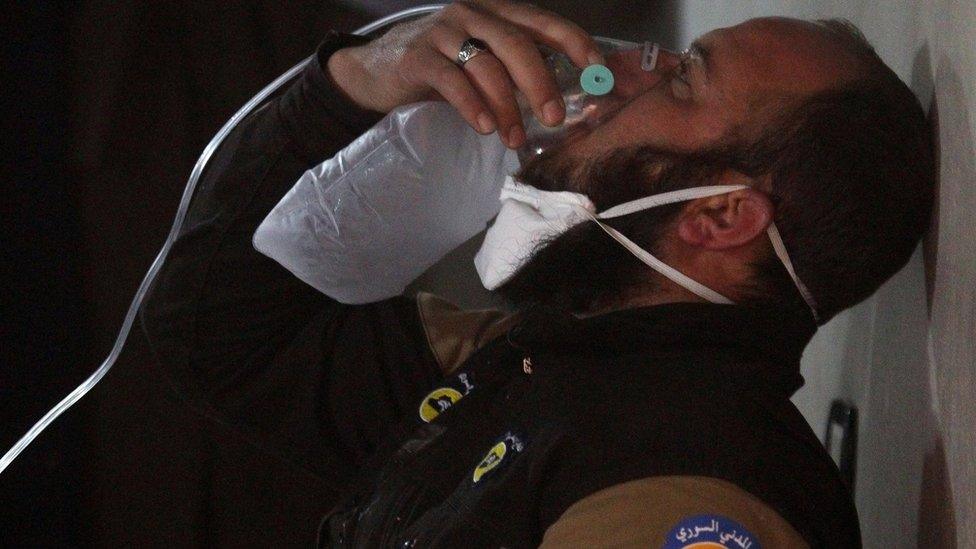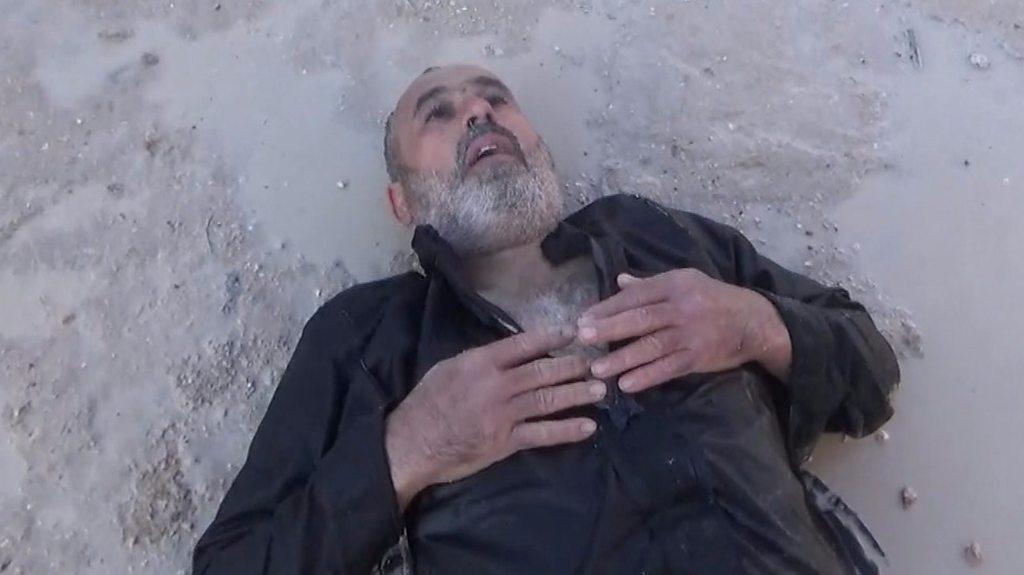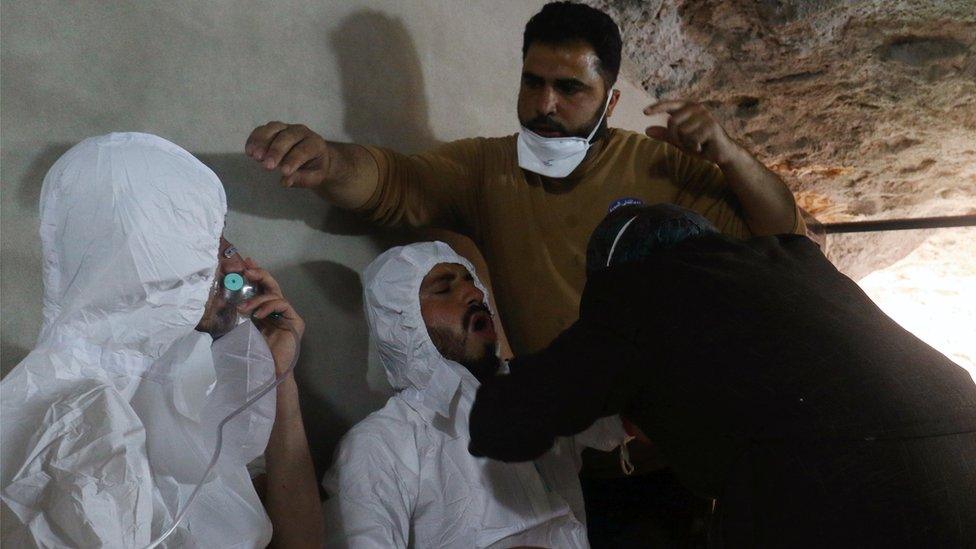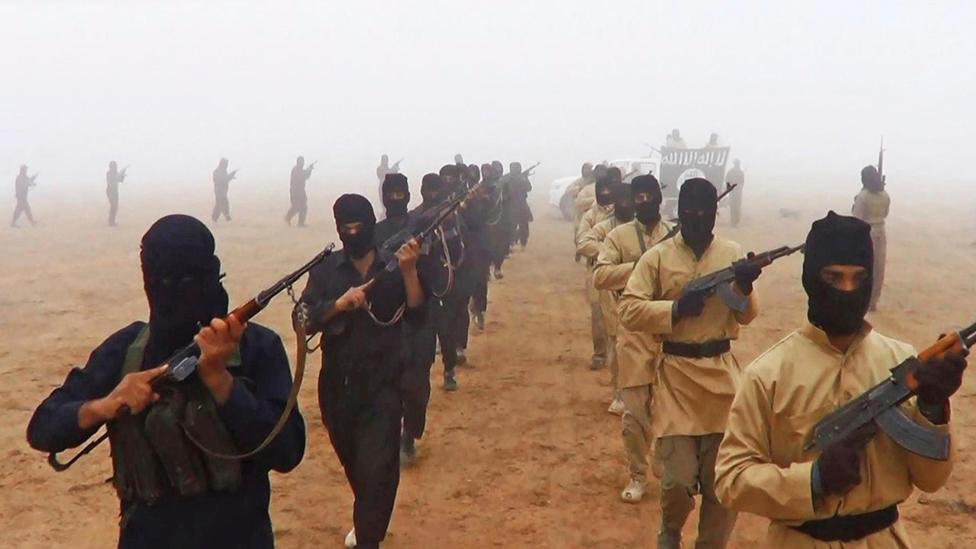Syria crisis: OPCW says Sarin used in Khan Sheikhoun attack
- Published

About 80 people died and many more were injured in the attack on Khan Sheikhoun
A fact-finding mission by chemical weapons watchdog the OPCW has concluded, external that the banned nerve agent Sarin was used in an attack in northern Syria in April that killed dozens of people.
A UN panel will now try to determine if the Syrian government was responsible, as the US has alleged.
The attack on Khan Sheikhoun in Idlib province was the most deadly in Syria in more than three years.
It prompted a retaliatory US missile strike against a Syrian air base.
The fact-finding mission for the Organisation for the Prohibition of Chemical Weapons (OPCW), which is based in The Hague, concluded that, after interviewing witnesses and examining samples, "a large number of people, some of whom died, were exposed to Sarin or a Sarin-like substance".
"It is the conclusion of the FFM (fact-finding mission) that such a release can only be determined as the use of Sarin, as a chemical weapon," a summary said.
The new report has been circulated among OPCW members but has not been made public.
A joint UN and OPCW investigation will now investigate who was to blame for the attack.
US President Donald Trump ordered a cruise missile strike on Shayrat air base after US officials concluded that the facility was where a Syrian Air Force jet had been armed with a Sarin-filled bomb.
Syrian President Bashar al-Assad has previously said that the incident was fabricated.
- Published4 May 2017

- Published26 April 2017

- Published13 April 2017

- Published17 October 2017
